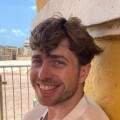In many ways, the Nyarugusu Refugee Camp in western Tanzania is quite different from other communities in the Play Unified: Learn Unified network. Still, the positive impact of Special Olympics programming is much the same.
Nyarugusu was founded in 1996, during the First Congo War, to accommodate people from the Democratic Republic of Congo (DRC) who were fleeing violence and persecution. The camp was also a haven for Burundian refugees during that country’s civil unrest in 2015. Today, over 130,000 refugees from the DRC and Burundi, forced to leave their countries of origin due to lasting conflict, call Nyarugusu home.
Dependent on the United Nations High Commissioner for Refugees (UNHCR), the Tanzanian government, and other donors for many of its services, Nyarugusu has limited independent resources and facilities. These constraints naturally provide challenges to implementing Special Olympics programming. Despite these limitations, Nyarugusu has been highly successful in promoting Play Unified: Learn Unified in the community.
In the past year, the collaboration between Nyarugusu and Special Olympics Tanzania led to the establishment of seven Unified Schools. This Unified Schools network currently boasts 263 athletes, 134 partners, and 34 teachers from the Congolese and Burundian populations. Members of the community and Special Olympics Tanzania are already inspired by Nyarugusu’s success.
“Play Unified: Learn Unified has [quickly] changed the negative attitudes toward people with intellectual disabilities in the camp’s schools. [Play Unified: Learn Unified] has stimulated the community’s love of learning and playing in an inclusive context,” he said.
Since the implementation of Play Unified: Learn Unified, the people of Nyarugusu have noticed a significant decrease in the isolation of people with intellectual disabilities in schools and in the community. Athletes, partners, and teachers in Nyarugusu have also shared their stories and cooperated with others in local, national, and international Special Olympics events. These experiences provide Unified Schools with best practices for building the skills of students and teachers, as well as ideas for spreading awareness about inclusion in the community.
Play Unified: Learn Unified also offers students in the camp the opportunity to interact deeply with individuals whom they likely would not otherwise encounter, let alone befriend. A Unified Schools network in a community such as Nyarugusu, with its unique multicultural makeup and sizeable number of people with intellectual disabilities, allows youth to break through age-old barriers of language, culture, and stigma.

Wilondja, a 13-year-old Special Olympics partner in Nyarugusu who enjoys participating in Unified activities such as football and races, said Play Unified: Learn Unified has led to new friendships among people of all abilities. “I didn’t have enough experience with children with intellectual disabilities before [Play Unified: Learn Unified]. Through this project, I’ve learned that persons with intellectual disabilities have the right to play with persons without intellectual disabilities and create friendships together,” said Wilondja.
The support of Play Unified: Learn Unified in Nyarugusu energizes people with intellectual disabilities. Ebinda, a 17-year-old Special Olympics athlete, has a goal of using the skills gained from Unified Schools programming and collaboration with Special Olympics Tanzania to teach communities the importance of educating people with intellectual disabilities. Unified Schools also provide Ebinda and their peers with continuous social interaction involving people who aren’t family members or other people with intellectual disabilities. “When I play Unified Sports®, I make new friends and we get to know each other very well. I’m happy that people with intellectual disabilities feel included in the community and play with other children,” said Ebinda.

Surprisingly—or perhaps not, given the known impact of Special Olympics programming—the establishment of Play Unified: Learn Unified in Nyarugusu has even changed the mindsets of teachers in the community who have experience working with people with intellectual disabilities. In Nyarugusu, for example, the inclusive nature of Play Unified: Learn Unified changed the perspective of Akili Baguma Yohana, a special needs teacher with 10 years of experience, about the best way to work with students.
“Play Unified: Learn Unified has changed my mentality because I once thought that children with intellectual disabilities could not play with children without intellectual disabilities. I no longer think this way. Since participating in [Play Unified: Learn Unified], I have noticed the youth change their mentality and behavior with regards to inclusion,” said Yohana.













